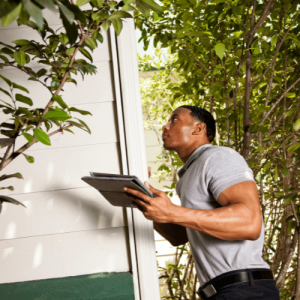The Florida real estate industry has faced increasing legal scrutiny regarding how realtors draft lease agreements. Many brokers have encountered lawsuits, contract disputes, and regulatory violations due to improperly written leases. The issue isn’t just about paperwork—it’s about professionalism, accountability, and ensuring that clients are protected.
Common Legal Issues in Lease Drafting
- Unauthorized Practice of Law – Florida law prohibits realtors from drafting legal documents beyond pre-approved lease agreements. Realtors who overstep these boundaries expose themselves and their brokers to legal liability.
- Ambiguous or Incomplete Terms – Poorly written leases often fail to clearly define responsibilities for repairs, deposits, and lease durations, leading to tenant-landlord disputes.
- Failure to Adhere to State and Local Laws – Lease agreements must comply with Florida’s landlord-tenant statutes. Realtors unaware of these laws risk drafting unenforceable contracts.
- Misrepresentation and Fraud Risks – Some realtors inadvertently include misleading terms or fail to disclose critical details, resulting in lawsuits or complaints.
The Call for Greater Professionalism
The National Association of Hispanic Real Estate Professionals (NAHREP) emphasizes professionalism as a core value, specifically in Discipline #2: Be in the Top 10% of Your Profession Because Being Good is Not Good Enough. This discipline challenges realtors to go beyond the basics and master the legal and ethical aspects of their profession.
To meet this standard, brokers must:
- Provide ongoing legal training to ensure realtors understand the boundaries of lease drafting.
- Encourage the use of standard lease templates approved by the Florida Association of Realtors and legal professionals.
- Promote collaboration with real estate attorneys for complex lease negotiations.
- Hold realtors accountable for compliance to protect both clients and the brokerage firm.
How Mark Pinilla Can Help
Mark Pinilla is a top-producing property manager with Keyes Property Management and trainer with nearly 30 years of real estate and property management experience. He supports over 1,000 REALTORS® at The Keyes Company, providing expert guidance on lease agreements, landlord-tenant laws, and compliance best practices. Mark also offers a specialized course, Understanding the Florida Lease Agreement, helping agents enhance their leasing knowledge.
For expert guidance on lease compliance, contact Mark Pinilla today.
Call to Action: Raising the Bar in Real Estate
Real estate professionals must step up their game. Brokers should implement stricter training, compliance checks, and ethical standards to mitigate legal risks. The industry’s reputation—and clients’ trust—depends on a commitment to professionalism and continuous learning.
Are you ready to challenge your team to uphold higher standards? The future of Florida real estate depends on it.
#RealEstateLaw #FloridaRealtors #LeaseCompliance #NAHREP #ProfessionalismInRealEstate #BrokerEthics




 6. Document the inspection: Take detailed notes and photographs during the inspection to document any issues or concerns. This documentation can serve as evidence if disputes arise later on. Keep records of previous inspections as well.
6. Document the inspection: Take detailed notes and photographs during the inspection to document any issues or concerns. This documentation can serve as evidence if disputes arise later on. Keep records of previous inspections as well. 3. Tenant Account Transparency: Maintaining financial statements provides transparency to tenants about their financial transactions with the landlord. Tenants have the right to receive periodic statements or records showing details of their rental payments, security deposit deductions, and any other financial obligations. Transparent financial statements build trust between landlords and tenants, reducing the potential for misunderstandings or disputes related to financial matters.
3. Tenant Account Transparency: Maintaining financial statements provides transparency to tenants about their financial transactions with the landlord. Tenants have the right to receive periodic statements or records showing details of their rental payments, security deposit deductions, and any other financial obligations. Transparent financial statements build trust between landlords and tenants, reducing the potential for misunderstandings or disputes related to financial matters.